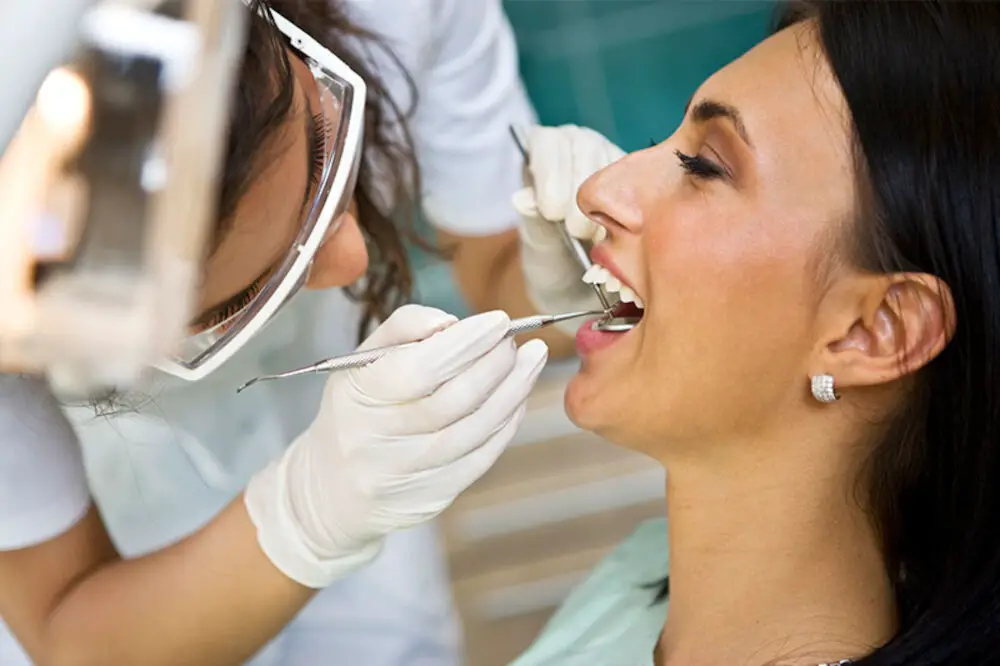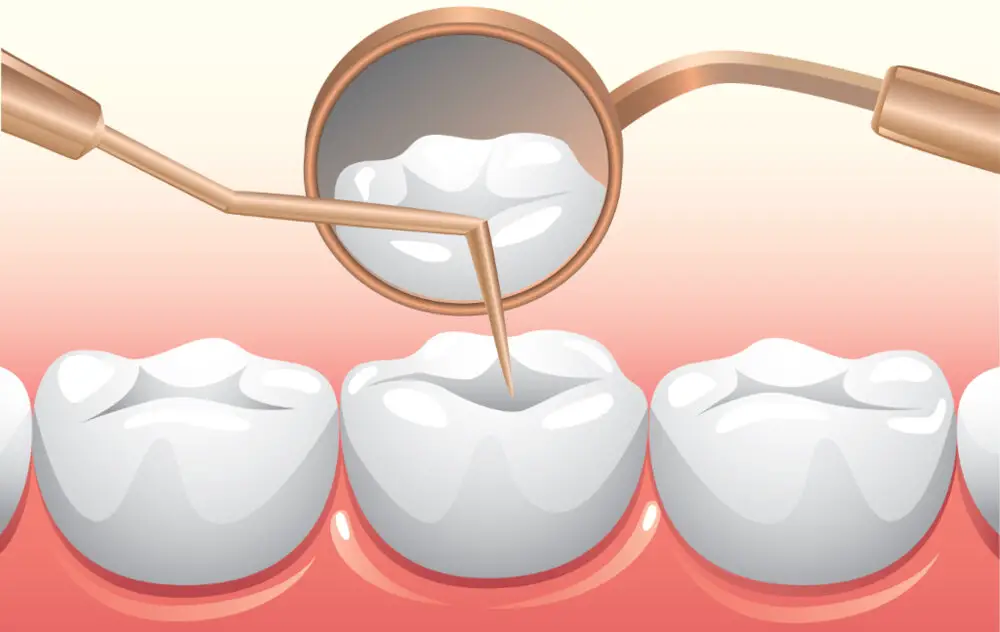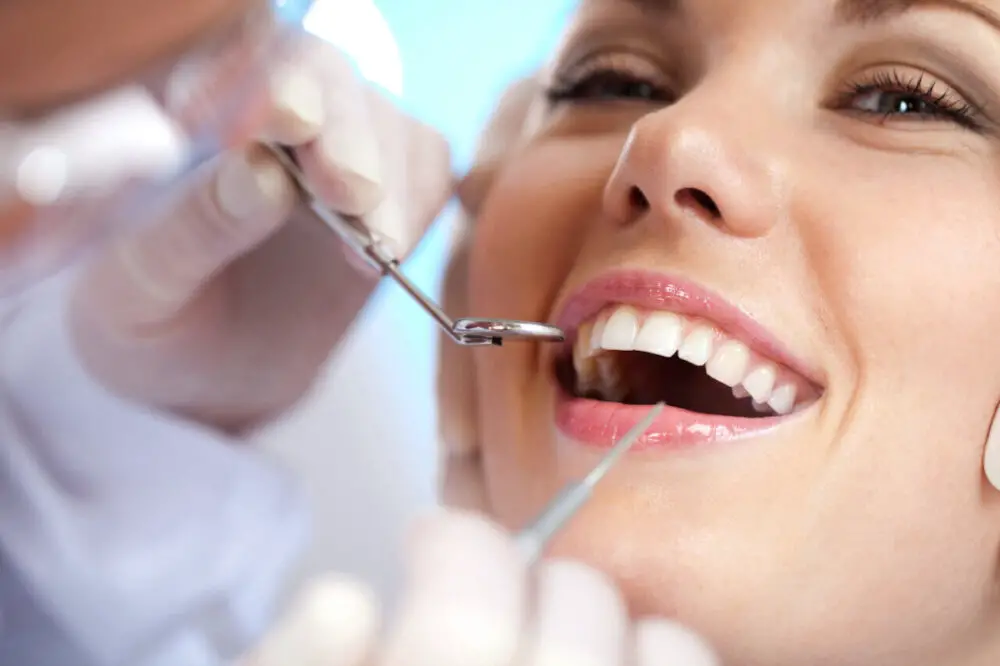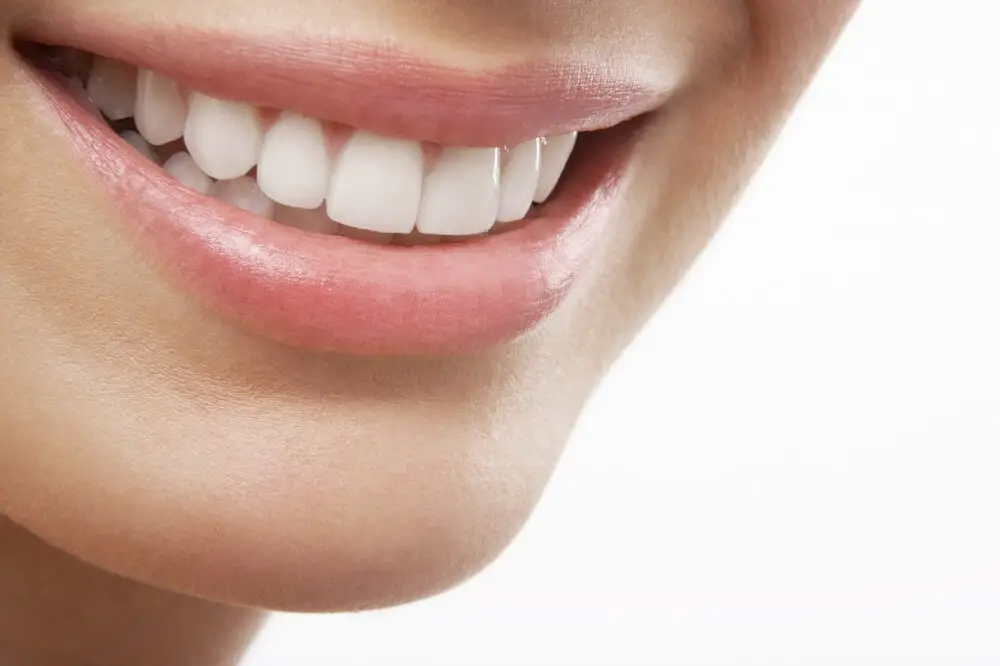Why Are My Teeth Transparent? Causes, Prevention, and Treatment Options

Transparent teeth can be a concerning issue for many individuals. Teeth are supposed to be opaque, solid, and white. However, translucent teeth can indicate an underlying dental problem that can become severe if left unchecked. From genetics to diet, several factors can cause teeth to become transparent. Understanding the root causes of this issue and adopting preventive measures can help keep your teeth healthy and white. Transparent teeth occur when the enamel on the surface of the teeth becomes thin or erodes away, exposing the inner layer of the teeth called dentin. Dentin is naturally yellow or brown and appears transparent, making the teeth look translucent. People with transparent teeth often experience increased sensitivity to hot and cold foods, which can be uncomfortable. In this article, we will explore the reasons behind transparent teeth, including genetics, diet, and dental health, and provide tips on how to prevent and treat this condition.
Tooth transparency is a condition where the teeth start to appear transparent or translucent, making them look less white and healthy. The most common cause of tooth transparency is enamel erosion, which can be brought about by various factors such as acidic foods, brushing too hard, or even aging. When the enamel on the teeth erodes, the underlying dentin in the teeth becomes more visible, resulting in a translucent appearance. Other causes of tooth transparency include genetics, excessive fluoride intake, and teeth grinding. Preventative measures for tooth transparency include avoiding acidic foods, using a soft-bristled toothbrush, and regular dental check-ups. Treatment options for tooth transparency include dental bonding, veneers, and in severe cases, dental implants.
The article titled \Why Are My Teeth Transparent: Causes, Prevention, and Treatment Options\ aims to provide an insight into the reasons why some individuals experience a loss of dental enamel resulting in translucent teeth. The article delves into the various factors leading to enamel erosion, such as genetics, age, diet, and certain lifestyle habits. Additionally, the article highlights the importance of preventative measures such as regular brushing, flossing, and dental check-ups to maintain healthy teeth. The article also discusses different treatment options such as dental bonding, veneers, and crowns to restore the appearance of the teeth. Overall, this informative article provides a comprehensive overview of transparent teeth, its causes, preventative measures, and treatment options to help individuals maintain healthy, beautiful teeth.
Causes of Transparent Teeth

Transparent teeth can be a common dental issue that causes the teeth to appear see-through or translucent. There are several potential causes of transparent teeth, including enamel erosion, genetics, and aging. Enamel erosion can occur due to acid erosion from acidic foods and drinks, tooth grinding, or brushing too hard. When the enamel wears away, the teeth become more transparent, and the underlying dentin layer is exposed. Genetics can also play a role in the transparency of teeth, as some individuals may naturally have thinner enamel or less dentin. Finally, as we age, the enamel on our teeth naturally wears down, leading to more transparent teeth. Preventing transparent teeth can involve several steps, including avoiding acidic foods and drinks, practicing good oral hygiene, and wearing a mouthguard at night if you grind your teeth. Treatment options for transparent teeth may vary depending on the cause of the transparency. For those with enamel erosion, dental bonding or veneers may be recommended to restore the appearance of the teeth. For those with genetic causes of transparent teeth, cosmetic dental procedures such as dental bonding, veneers, or crowns can help to improve the appearance of the teeth. Regardless of the cause of transparent teeth, it is important to seek advice from a dental professional to determine the best course of treatment for your individual needs.
Genetic factors play a significant role in determining the transparency of teeth. Some people are born with thinner enamel, which makes the dentin visible and gives the teeth a translucent appearance. This condition can be hereditary and passed down through generations. Additionally, certain genetic disorders such as Amelogenesis Imperfecta and Dentinogenesis Imperfecta can cause enamel to be weak and thin, resulting in transparent teeth. Therefore, it is essential to understand the genetic factors that contribute to transparent teeth and take preventive measures to maintain oral health. Regular dental check-ups, a healthy diet, and good oral hygiene practices can help prevent tooth decay and preserve the strength of the enamel.
Enamel erosion is a dental condition that occurs when the outer layer of the teeth, known as the enamel, starts to wear away. This can happen due to a variety of factors such as acidic foods and drinks, teeth grinding, and certain medical conditions. As the enamel erodes, the teeth can become transparent, making them appear weaker and more fragile. In addition, the erosion can lead to tooth sensitivity and make it easier for cavities to form. To prevent enamel erosion, it is important to maintain good oral hygiene habits, limit consumption of acidic foods and drinks, and seek treatment for any underlying medical conditions. Treatment options may include dental bonding, veneers, or even a dental crown, depending on the severity of the erosion.
Overconsumption of acidic or sugary foods and drinks can lead to tooth transparency. Acidic foods and drinks, such as citrus fruits and soda, erode the enamel on your teeth, making them thinner and more translucent. Sugary foods and drinks, on the other hand, provide fuel for bacteria in your mouth that produce acid, which also eats away at your enamel. It’s important to limit your intake of these types of foods and drinks to protect your teeth from further damage. Drinking water after consuming acidic or sugary substances can help neutralize the acid and rinse away any leftover debris. Additionally, practicing good oral hygiene, such as brushing twice a day and flossing daily, can help prevent tooth transparency and other dental problems.
There are various medical conditions that can lead to transparent teeth. One such condition is enamel hypoplasia, a dental condition where the tooth enamel does not form properly, resulting in thin or weak enamel. This can also be caused by genetic factors, poor nutrition during tooth development, or certain medications. Another condition that can cause transparent teeth is acid erosion, which occurs when acidic foods and drinks erode the enamel over time. Other medical conditions, such as bulimia or gastroesophageal reflux disease (GERD), can also lead to transparent teeth due to the constant exposure to stomach acids. Proper dental care, including a healthy diet and regular dental check-ups, can help prevent and treat transparent teeth caused by medical conditions.
Prevention of Transparent Teeth

Transparent teeth, also known as translucent teeth, occur when the enamel on the teeth becomes thin or worn down. This can be caused by various factors such as genetics, aging, acidic foods and drinks, and tooth grinding. However, there are preventative measures that can be taken to reduce the risk of developing transparent teeth. One of the most important things is to maintain good oral hygiene habits such as brushing twice a day and flossing regularly. This can help to prevent the buildup of plaque and bacteria that can cause enamel erosion. It is also important to use a soft-bristled toothbrush and to avoid brushing too aggressively, as this can also contribute to enamel wear. Another important preventative measure is to watch what you eat and drink. Acidic foods and drinks such as citrus fruits, soda, and coffee can erode the enamel on your teeth over time. Therefore, it is important to limit your intake of these items and to rinse your mouth with water after consuming them. You can also use a straw when drinking acidic beverages to help minimize contact with your teeth. Additionally, if you grind your teeth at night, it is important to wear a mouthguard to protect your teeth from further wear and tear. By taking these preventative measures, you can help to reduce your risk of developing transparent teeth and maintain a healthy smile.
Dietary changes can play a significant role in preventing transparent teeth. Consuming foods and beverages that are high in sugar and acid can erode the enamel on the teeth, leading to transparency. It is crucial to limit the intake of sugary drinks, acidic foods, and snacks to maintain healthy teeth. Foods that are high in calcium and phosphorus, such as dairy products, can strengthen the enamel and protect the teeth from erosion. Additionally, drinking plenty of water can help maintain good oral health by washing away food particles and neutralizing acid in the mouth. Making small dietary changes can have a big impact on the health of your teeth and prevent them from becoming transparent.
Proper oral hygiene practices are crucial for maintaining healthy teeth and gums. Brushing your teeth twice a day with fluoride toothpaste is a fundamental step in preventing tooth decay and gum disease. It is also recommended to floss daily to remove food particles and plaque from between teeth and below the gumline. Additionally, using an antiseptic mouthwash can help kill bacteria that cause bad breath and gum disease. A balanced diet, rich in calcium and vitamin D, is also essential for keeping teeth strong and healthy. Finally, regular dental check-ups and cleanings with a dentist can help identify and address any oral health issues before they worsen. By following these simple steps, you can keep your teeth transparent and maintain a healthy smile.
Regular dental visits are crucial in maintaining optimal oral health and preventing tooth transparency. During these visits, dentists can identify early signs of enamel erosion and provide preventative measures to stop further erosion. Additionally, dental cleanings can remove plaque buildup, which can contribute to enamel erosion. Patients can also receive guidance on proper oral hygiene practices to maintain healthy teeth and gums. Ultimately, regular dental visits can help prevent tooth transparency and ensure a healthy smile for years to come.
The use of fluoride products is an effective way to prevent tooth transparency. Fluoride is a mineral that helps to strengthen tooth enamel and protect against decay. It works by replacing lost minerals in the enamel, making it more resistant to acid attacks from bacteria. Fluoride can be found in toothpaste, mouthwash, and even in some drinking water sources. Regular use of fluoride products can help to prevent tooth transparency caused by erosion or acid wear. However, it is important to use fluoride products in moderation, as excessive use can lead to dental fluorosis, a condition that causes white spots or discoloration on the teeth. A dentist can provide guidance on the appropriate use of fluoride products for optimal dental health.
Treatment Options for Transparent Teeth

Transparent teeth can be a sign of enamel erosion, which can occur due to a variety of reasons including acidic food and drinks, poor oral hygiene, frequent use of teeth whitening products, and medical conditions such as gastroesophageal reflux disease (GERD). If left untreated, transparent teeth can lead to sensitivity, decay, and even tooth loss. However, there are several treatment options available for transparent teeth, which can help restore the strength and appearance of the affected teeth. One of the most common treatment options for transparent teeth is dental bonding, which involves the application of a tooth-colored composite resin to the affected teeth. This resin is then shaped and polished to match the natural color and shape of the teeth, creating a seamless and natural-looking smile. Another treatment option is dental veneers, which are thin shells made of porcelain or composite resin that are bonded to the front of the teeth. Veneers can not only improve the appearance of transparent teeth but also help protect them from further damage. In some cases, dental crowns may be recommended to cover the entire tooth and provide additional protection and support to the affected tooth.
When it comes to treating transparent teeth, bonding and veneers are two popular options. Bonding involves applying a tooth-colored resin to the surface of the tooth and shaping it to improve its appearance. This is a simple and cost-effective option that can be completed in a single visit to the dentist. Veneers, on the other hand, are thin porcelain shells that are custom-made to fit over the front of the teeth. They are a more permanent solution and can last for many years with proper care. Veneers are a bit more expensive than bonding, but they offer a more natural look and can also correct other cosmetic issues such as gaps, chips, and discoloration. Your dentist can help you determine which option is best for your individual needs and budget.
Teeth whitening is a popular cosmetic dental treatment that is used to enhance the appearance of teeth by removing stains and discoloration. This procedure is usually carried out by a dentist or dental hygienist, and can be done in-office or at home using custom-made trays. Teeth whitening works by using a bleaching agent, usually hydrogen peroxide or carbamide peroxide, to break down stains and lighten the color of the teeth. While teeth whitening can be an effective way to improve the look of your smile, it is important to note that it is not a permanent solution, and results may vary depending on the severity of your discoloration and your overall oral health. It is also important to follow proper oral hygiene practices and avoid foods and drinks that can cause staining, in order to maintain the results of your teeth whitening treatment.
Crowns or caps are dental restorations that are designed to cover the entire tooth, restoring its original shape and function. They are typically recommended for teeth that have been severely damaged or decayed, or for teeth that have undergone root canal therapy. Crowns and caps are made from a variety of materials, including porcelain, ceramic, and metal, and they can be customized to match the color and shape of your existing teeth. They are an effective way to strengthen and protect teeth that are weak or vulnerable to further damage, and they can last for many years with proper care and maintenance. If you are experiencing transparency in your teeth, your dentist may recommend crowns or caps as a treatment option to help restore the natural appearance and strength of your teeth.
Enamel microabrasion is a minimally invasive cosmetic dental procedure that involves the removal of a thin layer of enamel from the teeth’s surface using an acid and abrasive compound. The procedure is typically used to treat teeth with discoloration or white spots caused by fluorosis, a condition that occurs due to excessive fluoride intake during tooth development. Enamel microabrasion can also be used to treat other forms of dental discoloration caused by genetics, trauma, or medication. The procedure is safe and effective, and it can improve the appearance of teeth without the need for more invasive treatments like veneers or crowns. However, it’s important to note that enamel microabrasion is not suitable for all types of dental discoloration, and a dental professional should evaluate each case to determine the best course of treatment.
Transparent teeth can be caused by a variety of factors, including genetics, aging, poor dental hygiene, and a diet high in acidic foods and drinks. To prevent transparent teeth, it is important to maintain good dental hygiene by brushing twice a day with a fluoride toothpaste, flossing daily, and avoiding acidic foods and drinks. Treatment options for transparent teeth depend on the underlying cause and may include dental bonding, tooth-colored fillings, or porcelain veneers. In some cases, a dental crown or root canal may be necessary. It is important to consult with a dentist to determine the best treatment plan for individual needs.
Maintaining good dental care is essential for overall health and well-being. Teeth are an important part of our body, and they require regular attention to prevent tooth decay and other dental problems. Seeking professional treatment for dental issues is also crucial. A dentist can provide proper diagnosis, treatment, and preventive care to maintain good oral health. Regular dental check-ups can detect dental problems early, which can prevent them from becoming more serious issues. Additionally, professional dental cleanings can remove plaque and tartar buildup, which can help prevent tooth decay and gum disease. By prioritizing dental care and seeking professional treatment, individuals can keep their teeth healthy and avoid dental problems that can impact their overall health.
Conclusion

In conclusion, having transparent teeth can be a cause of concern for many individuals, as it can affect their appearance and confidence. However, understanding the causes and prevention methods can help in avoiding this condition. Maintaining good oral hygiene, avoiding acidic food and drinks, and regular dental checkups are essential to prevent teeth transparency. Treatment options such as bonding, veneers, and dental crowns can also help in restoring the natural appearance of the teeth. It is important to address this issue promptly and seek professional dental advice to ensure optimal dental health and a confident smile.





